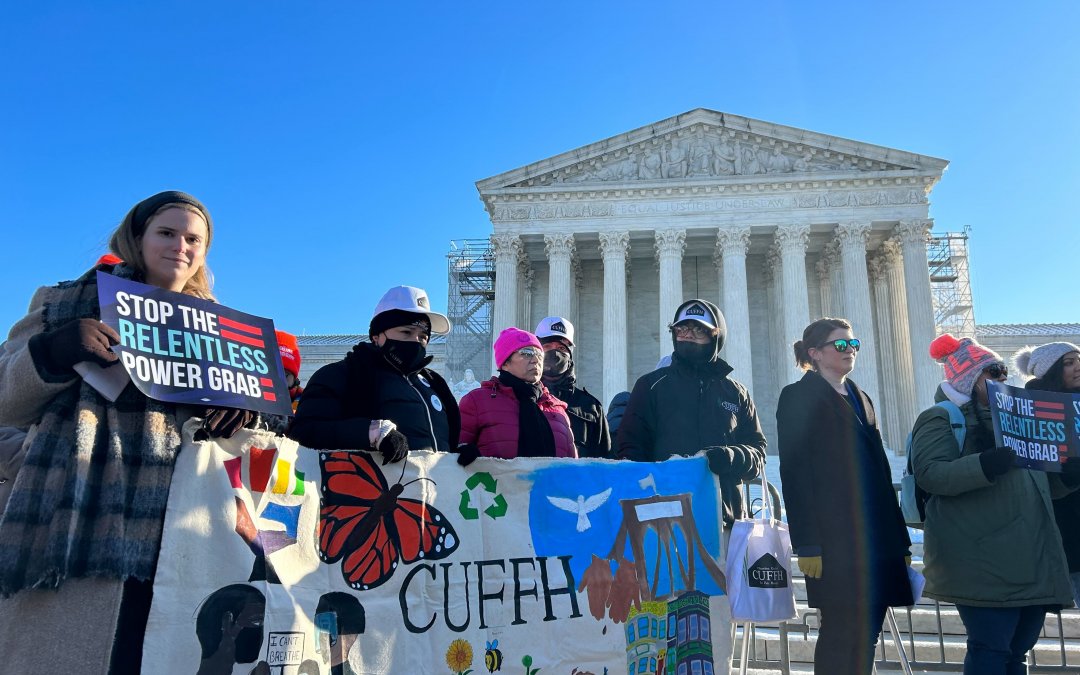WASHINGTON – Conservative justices on The Supreme Court seem poised to overturn a doctrine that allows federal agencies to interpret ambiguous legislation, after oral arguments Wednesday.
The doctrine came under threat from two separate cases involving small fishing companies, Relentless, Inc. v. Department of Commerce and Loper Bright Enterprises v. Raimondo, but the Court’s holding will impact more than how many herring the companies’ vessels can catch.
The plaintiffs asked the justices to overturn the Chevron Doctrine, one of the most cited Supreme Court rulings, which is meant to ensure that federal agencies can implement laws passed by Congress. An overturn of the 1985 ruling would drastically limit the power of the bureaucracy.
“This is a major administrative law case,” said Julie Marie Blake, senior counsel at Alliance Defending Freedom. “One of the most important questions that the Supreme Court is going to consider this term with huge implications for fundamental freedoms, the separation of powers, federal agencies and everyday Americans.”
Despite Chevron limiting judicial activism by deferring interpretation to experts, it has helped expand executive power via federal agencies. This includes rulings regarding climate protection, Medicare, Medicaid and public safety.
But it wasn’t always only supported by the pro-regulation camp. The doctrine came from a case that reduced pollution regulation.
Only in the past decade has Chevron come under question after a conservative movement to restrict the administrative state gained prominence, according to Ian Fein, senior counsel at the National Resource Defense Council. This is why many small-government proponents support overturning the deference, and why almost 70 briefs have been filed to add insight to the case.
Justices Clarence Thomas, Samuel Alito, Neil Gorsuch and Brett Kavanaugh have each previously opposed deferring interpretation to agencies. Their questions to defense lawyers on Wednesday indicated their willingness to overturn the 40-year precedent.
Justice Kavanaugh said he feared “unchecked executive power,” and Justice Alito said the deference forces courts to favor the federal government at citizens’ expense, even when the court disagrees with an agency’s interpretation of rules.
Stressing the inevitable ambiguity of some legislation, Justice Elena Kagan offered the rapid development of A.I. as an example where Congress cannot account for future development. She called this the “limits of language.”
The defense said courts could act as “neutral umpires” to decipher such ambiguity, but Justice Ketanji Brown Jackson said resolving legislative ambiguity is better left to experts than the courts.
“When you’re a hammer, everything looks like a nail,” she said, adding that deferring decision-making power to judges would result in an “impractical and chaotic” world.
“The stakes in this case are pretty high,” Fein of NRDC said. “But to me, what’s of greater concern is how this case fits into those other arguments that regulatory opponents are making.”
The plaintiffs went to court after the National Marine Fisheries Service updated its regulations to require vessels to contract with and pay third-party observers, who would ensure the companies complied with conservation guidelines and not overfish.
They argued that NMFS overstepped by making herring vessels pay for the monitors when Congress’s legislation did not specify that herring companies were to cover these costs.
Paying the observers could reduce a vessel’s take-home pay by 20%, but government waivers and exemptions made the program more affordable.
NMFS ended the industry-funded monitoring program two years after it started and offered a 100% reimbursement to the companies affected.
According to the respondents’ brief, “[i]n practice, the 2020 rule’s monitoring provisions have had no financial impact on regulated vessels.”
The plaintiffs argued that the lower courts’ rulings, which both cited Chevron, gave federal agencies the power to make and interpret the law.
“Chevron deference is a way for agencies to flip through the rule books, push the most radical aggressive interpretation of law, and then cross their fingers that the courts won’t actually look at the law itself,” Marie Blake said in support of overturning the doctrine.
In an amicus curiae brief, the U.S. House of Representatives contended that this case did not invoke the Chevron doctrine.
But it said: “treating statutory silences standing alone as delegations of power would make it extraordinarily difficult for Congress to constrain agency authority.”
The Department of Commerce argued that Chevron stabilizes decision-making when Congress fails to create specific laws.
But the prosecutors said statutory silence on certain issues does not signal “hours of deliberation” in Congress. Rather, it could mean members of a divided Congress were unable to pass bipartisan legislation, so they relied on “friends” in executive agencies to further particular agendas.
The New York Times recently reported that the nonprofits representing the Loper Bright and Relentless plaintiffs have each received millions of dollars in funding in recent years from the Charles Koch Foundation — a right-libertarian network funded by its namesake, Bloomberg’s 21st wealthiest individual.
The increasing power of large corporations — many of which, like Koch’s, engage in practices such as oil refining — speaks to Fein’s concern that limiting the administrative state will result in “more harm occurring to individual humans,” who benefit from agency protections.
But according to Fein, any limitation on Chevron will “end up with a lot more probably disarray in the law in terms of what agencies can and can’t do.”



